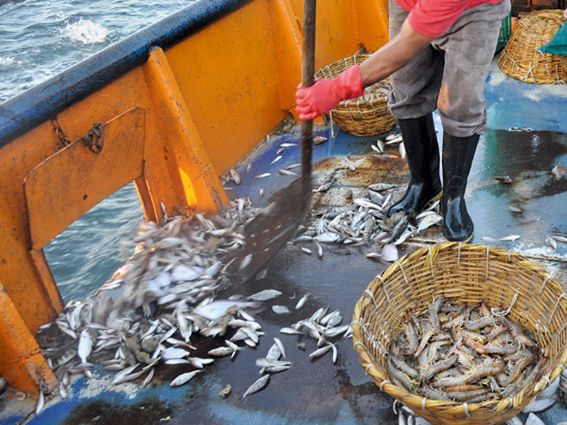The European Fisheries Control Agency (EFCA) in cooperation with the Member States Control Expert Groups (CEGs) has carried out an evaluation of compliance with the Landing Obligation (LO) in selected fisheries in the North Sea and North Western Waters. The evaluation was performed over the period 2015-2017 for mackerel fisheries and over 2016-2017 for North Sea fisheries targeting cod, plaice and sole and for North-western waters fisheries targeting haddock, hake and whiting.
The evaluation implemented up to five different methods for measuring the compliance with the Landing Obligation, also mitigating the low availability of reference data obtained during sea inspections where the catch composition is assessed.
The overall results suggest that non-compliance with the LO appears to have been widespread during the evaluation period.
Moreover, detection of non-compliance with the Landing Obligation remains difficult when only depending on classical monitoring based on inspections due to the fleeting nature of discards at sea, which may occur at any time of the fishing trip by day and by night.
The evaluation concludes that Remote Electronic Monitoring (REM) systems, encompassing Close Circuit Television (CCTV), ensure a continuous observation of the fishing gear and catch processing activities on board the fishing vessels, and would be instrumental in the efficient monitor, control and surveillance of compliance with the Landing Obligation.
Background: The Landing Obligation in the Common Fisheries Policy (CFP)
Discarding is the practice of returning unwanted catches to the sea, either dead or alive, because they are undersized, due to market demand, or because the fisherman has no quota. The reform of the Common Fisheries Policy (CFP) of 2013 aimed at gradually eliminating the wasteful practice of discarding through the introduction of the landing obligation. This radical change in fisheries management aims to improve fishing behaviour through improvements in selectivity.
There are some exemptions to the landing obligation. Catches, from species regulated by catch limits (TACs) or by Minimum Size can still be returned to the sea if they are covered by exemptions such as de minimis and high survivability (defined in the discard plans) or damaged fish (by predators, disease or any other potential contamination). These catches are not counted against the quota, but they must be documented in the logbook.
The article 15-13 of the CFP Regulation (EU) No 1380/2013 reads: “For the purpose of monitoring compliance with the landing obligation, Member States shall ensure detailed and accurate documentation of all fishing trips and adequate capacity and means, such as observers, closed-circuit television (CCTV) and others. In doing so, Member States shall respect the principle of efficiency and proportionality.”

